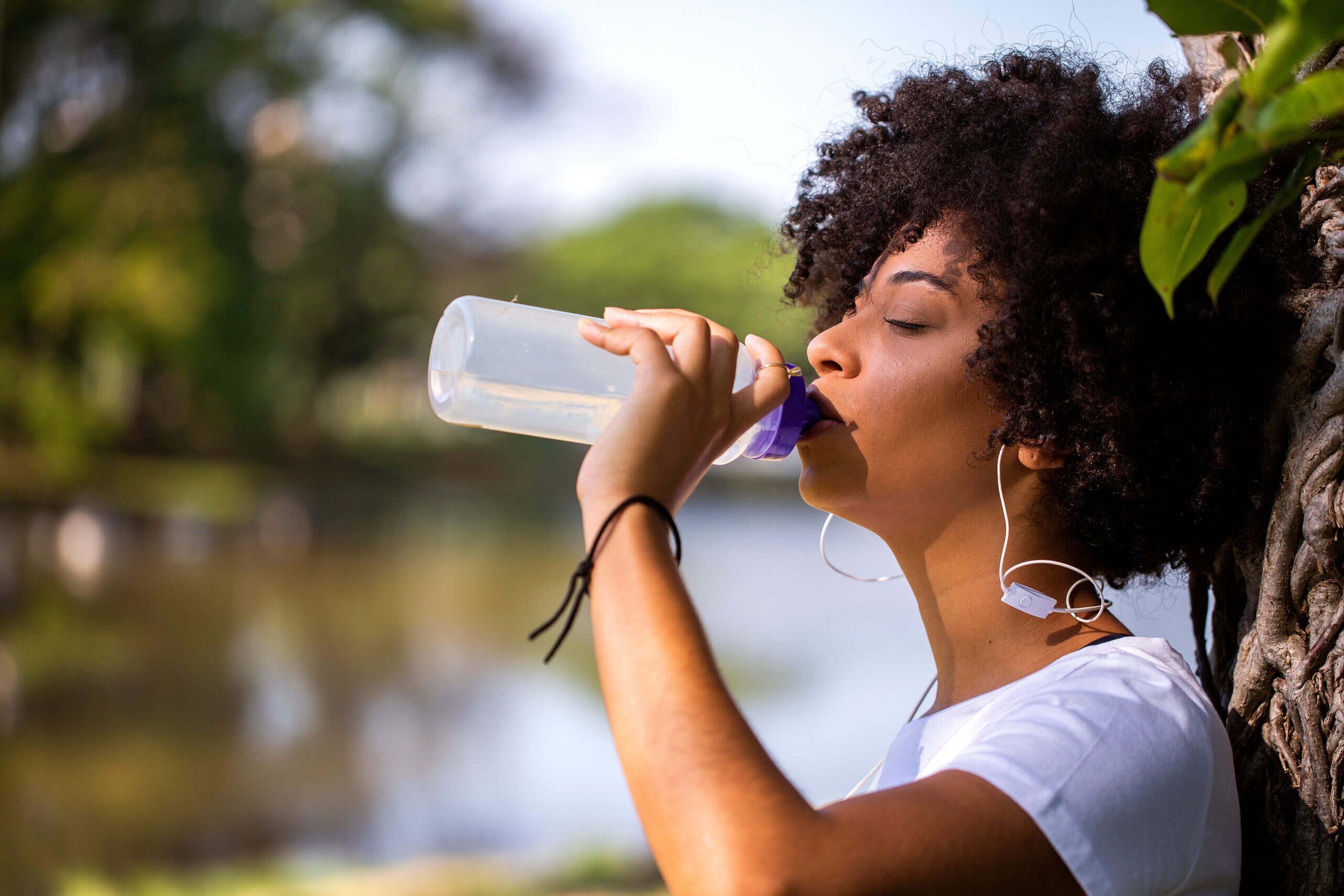
Hydration is essential for maintaining good health and overall well-being. Water makes up about 60% of the human body, playing a crucial role in various bodily functions. But how much do you really know about staying hydrated? From the benefits of drinking water to the signs of dehydration, understanding hydration can help you make better choices for your health. Did you know that even mild dehydration can affect your mood and energy levels? Or that certain foods can help keep you hydrated? In this post, we'll explore 34 fascinating facts about hydration that might surprise you. Whether you're an athlete, a busy professional, or just someone looking to improve their health, these insights will help you stay properly hydrated every day.
Key Takeaways:
- Stay hydrated to keep your body running smoothly. Water helps your brain, skin, and joints, and keeps you energized. Watch out for signs of dehydration like dry mouth and fatigue.
- Hydration needs change with the seasons and age. Drink water before, during, and after exercise, and encourage kids and elderly to stay hydrated. Remember, water is essential for everyone!
What is Hydration?
Hydration is the process of providing or absorbing water. It's essential for life and plays a crucial role in maintaining bodily functions. Here are some fascinating facts about hydration that you might not know.
-
Human Body Composition: About 60% of the human body is water. This percentage can vary based on age, gender, and body composition.
-
Brain Power: The brain is approximately 75% water. Proper hydration can improve concentration and cognitive function.
-
Daily Water Intake: The average adult should drink about 8 cups (64 ounces) of water daily. However, individual needs can vary based on activity level, climate, and health conditions.
-
Hydration and Skin: Drinking enough water can improve skin elasticity, making it look more youthful and radiant.
-
Hydration and Weight Loss: Sometimes, thirst is mistaken for hunger. Drinking water before meals can help control appetite and support weight loss efforts.
Benefits of Staying Hydrated
Staying hydrated offers numerous benefits beyond just quenching thirst. Here are some key advantages of maintaining proper hydration.
-
Temperature Regulation: Water helps regulate body temperature through sweating and respiration.
-
Joint Lubrication: Proper hydration keeps joints lubricated, reducing the risk of injury and improving mobility.
-
Digestive Health: Water aids in digestion by helping break down food and absorb nutrients.
-
Detoxification: Hydration supports kidney function, helping to flush out toxins and waste products from the body.
-
Energy Levels: Dehydration can lead to fatigue. Staying hydrated helps maintain energy levels throughout the day.
Signs of Dehydration
Recognizing the signs of dehydration is crucial to prevent serious health issues. Here are some common symptoms to watch out for.
-
Dry Mouth: A dry or sticky mouth is often an early sign of dehydration.
-
Dark Urine: Dark yellow or amber-colored urine indicates that you need to drink more water.
-
Fatigue: Feeling unusually tired or lethargic can be a sign of dehydration.
-
Dizziness: Lightheadedness or dizziness, especially when standing up, can indicate low fluid levels.
-
Dry Skin: Dehydrated skin may appear dry, flaky, or less elastic.
Hydration Myths Debunked
There are many misconceptions about hydration. Let’s clear up some of the most common myths.
-
Myth: Only Water Hydrates: While water is the best choice, other beverages like milk, juice, and herbal teas also contribute to hydration.
-
Myth: Thirst is the Best Indicator: Thirst is a late indicator of dehydration. It's better to drink water regularly throughout the day.
-
Myth: Coffee Dehydrates: Moderate coffee consumption can contribute to your daily fluid intake without causing dehydration.
-
Myth: You Can Overhydrate Easily: While overhydration is possible, it’s rare. Most people don’t drink enough water rather than too much.
-
Myth: Sports Drinks are Necessary: For most people, water is sufficient. Sports drinks are only necessary for intense exercise lasting more than an hour.
Hydration Tips for Different Seasons
Hydration needs can change with the seasons. Here are some tips to stay hydrated year-round.
-
Summer: Drink more water to compensate for increased sweating. Eat water-rich fruits like watermelon and cucumber.
-
Winter: Cold weather can reduce the sensation of thirst. Drink warm beverages like herbal tea to stay hydrated.
-
Spring: As temperatures rise, gradually increase your water intake. Include hydrating foods like strawberries and lettuce in your diet.
-
Fall: Maintain hydration by drinking water regularly. Enjoy seasonal fruits like apples and pears, which have high water content.
Hydration and Exercise
Exercise increases the body's need for water. Here are some facts about staying hydrated during physical activity.
-
Pre-Exercise Hydration: Drink water before starting your workout to ensure you're adequately hydrated.
-
During Exercise: Sip water every 15-20 minutes during exercise to replace fluids lost through sweat.
-
Post-Exercise: Rehydrate after exercising to replenish lost fluids and aid recovery.
-
Electrolytes: For intense workouts, consider drinks with electrolytes to replace lost minerals.
-
Hydration Packs: For long-duration activities like hiking, use hydration packs to carry water conveniently.
Hydration for Different Age Groups
Hydration needs vary across different age groups. Here’s what you need to know for each stage of life.
-
Infants: Babies get most of their hydration from breast milk or formula. Introduce small amounts of water after six months.
-
Children: Encourage kids to drink water regularly, especially during playtime and school.
-
Adults: Maintain a consistent water intake throughout the day. Adjust based on activity level and climate.
-
Elderly: Older adults may have a reduced sense of thirst. Remind them to drink water regularly to prevent dehydration.
-
Pregnant Women: Increased fluid intake is essential during pregnancy to support the growing baby and maintain amniotic fluid levels.
Final Thoughts on Hydration
Staying hydrated is crucial for overall health. Water makes up about 60% of our bodies, playing a vital role in digestion, circulation, and temperature regulation. Drinking enough water can improve mood, boost energy levels, and even aid in weight loss. Dehydration, on the other hand, can lead to headaches, fatigue, and serious health issues.
Remember, not all fluids are created equal. While water is the best choice, other beverages like herbal teas and milk can also contribute to your daily intake. Foods high in water content, such as fruits and vegetables, are another great source.
Listen to your body. Thirst is a clear signal you need more fluids. Aim for at least eight 8-ounce glasses a day, but adjust based on your activity level, climate, and individual needs. Stay hydrated, stay healthy!
Frequently Asked Questions
Was this page helpful?
Our commitment to delivering trustworthy and engaging content is at the heart of what we do. Each fact on our site is contributed by real users like you, bringing a wealth of diverse insights and information. To ensure the highest standards of accuracy and reliability, our dedicated editors meticulously review each submission. This process guarantees that the facts we share are not only fascinating but also credible. Trust in our commitment to quality and authenticity as you explore and learn with us.


